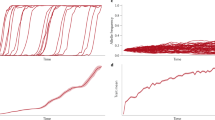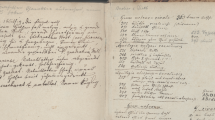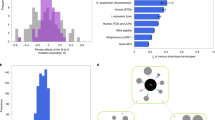Abstract
THE battle, which raged for so long between the theories of evolution supported by geneticists on one hand and by naturalists on the other, has in recent years gone strongly in favour of the former. Few biologists now doubt that genetical investigation has revealed at any rate the most important categories of hereditary variation ; and the classical 'naturalist' theory-the inheritance of acquired characters-has been very generally relegated to the background because, in the forms in which it has been put forward, it has required a type of hereditary variation for the existence of which there was no adequate evidence. The long popularity of the theory was based, not on any positive evidence for it, but on its usefulness in accounting for some of the most striking of the results of evolution. Naturalists cannot fail to be continually and deeply impressed by the adaptation of an organism to its surroundings and of the parts of the organism to each other. These adaptive characters are inherited and some explanation of this must be provided. If we are deprived of the hypothesis of the inheritance of the effects of use and disuse, we seem thrown back on an exclusive reliance on the natural selection of merely chance mutations. It is doubtful, however, whether even the most statistically minded geneticists are entirely satisfied that nothing more is involved than the sorting out of random mutations by the natural selective filter. It is the purpose of this short communication to suggest that recent views on the nature of the developmental process make it easier to understand how the genotypes of evolving organisms can respond to the environment in a more co-ordinated fashion.
This is a preview of subscription content, access via your institution
Access options
Subscribe to this journal
Receive 51 print issues and online access
$199.00 per year
only $3.90 per issue
Buy this article
- Purchase on Springer Link
- Instant access to full article PDF
Prices may be subject to local taxes which are calculated during checkout
Similar content being viewed by others
References
Robson, G. C., and Richards, O. W., "The Variation of Animals in Nature" (London, 1936).
Duerden, J. E., "The Inheritance of the Callosities in the Ostrich", Amer. Nat., 54, 289 (1920).
Darwin, C., "The Descent of Man and Selection in Relation to Sex" (London, 1901).
Detlefsen, J. A., "The Inheritance of Acquired Characters", Physiol. Rev., 5, 244 (1925).
Huxley, J. S., "Evolution: The Modern Synthesis", p. 74 (London, 1942).
Plunkett, C. C., "Temperature as a Tool in Research in Phenogenetics", Proc. 6th Int. Congr. Gen., 2, 158 (1932).
Ford, E. B., "Genetic Research in the Lepidoptera", Ann. Eugen., 10, 227 (1940).
Fisher, R. A., "The Possible Modification of the Response of the Wild Type to Recurrent Mutations", Amer. Nat., 62, 115 (1928).
Stern, C., "Uber die additive Wirkung multipler Allele", Biol. Zbl., 49, 231 (1929).
Muller, H. J., "Further Studies on the Nature and Causes of Gene Mutations", Proc. 6th int. Congr. Gen., 1, 213 (1932).
Waddington, Growth Suppl., 37 (1940).
Mather, K., and de Winton, D., "Adaptation and Counter-adaptation of the Breeding System in Primula", Ann. Bot., 5, 297 (1941).
Kühn, A., "Versuche über die Wirkungsweise der Brbaulagen", Naturwiss., 24, 1 (1936).
Waddington, C. H., "Organisers and Genes" (Cambridge, 1940); "Genes as Evocators in Development" (1940).
Author information
Authors and Affiliations
Rights and permissions
About this article
Cite this article
WADDINGTON, C. CANALIZATION OF DEVELOPMENT AND THE INHERITANCE OF ACQUIRED CHARACTERS. Nature 150, 563–565 (1942). https://doi.org/10.1038/150563a0
Issue Date:
DOI: https://doi.org/10.1038/150563a0
This article is cited by
-
Precedent as a path laid down in walking: Grounding intrinsic normativity in a history of response
Phenomenology and the Cognitive Sciences (2024)
-
Advancing and Integrating the Cusp Concept to Understand Behavioral Repertoire Dynamics
Perspectives on Behavior Science (2024)
-
The neuropsychopharmacology of acetyl-L-carnitine (LAC): basic, translational and therapeutic implications
Discover Mental Health (2024)
-
Robust morphogenesis by chaotic dynamics
Scientific Reports (2023)
-
Rapid and biased evolution of canalization during adaptive divergence revealed by dominance in gene expression variability during Arctic charr early development
Communications Biology (2023)
Comments
By submitting a comment you agree to abide by our Terms and Community Guidelines. If you find something abusive or that does not comply with our terms or guidelines please flag it as inappropriate.



